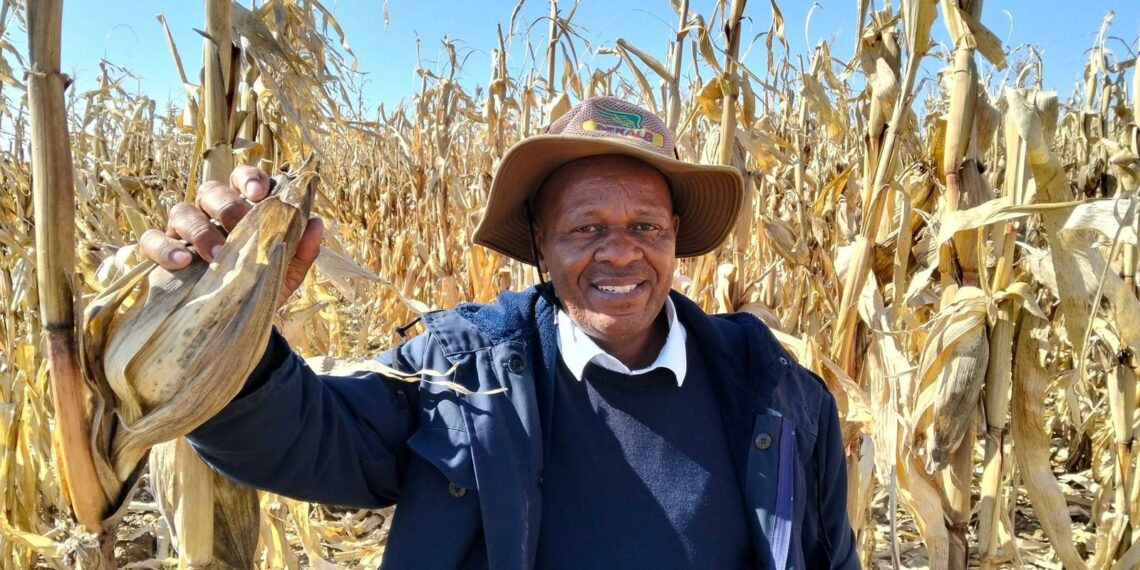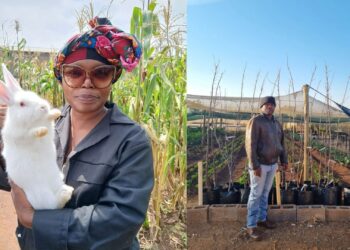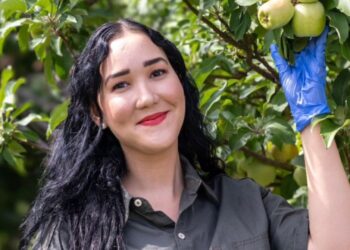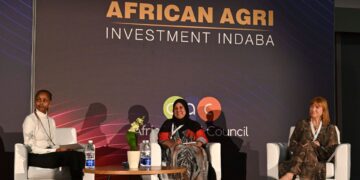Hlalele Joseph Khahleli’s journey in farming began with a simple yet profound motivation: to support his community and follow in the footsteps of his late father, who was a farmer in the Free State.
Born and raised in Warden, within the Thabo Mofutsanyana municipality of the Free State, Khahleli spent his early years closely observing and assisting his father, Samuel Buti Khahleli, on the farm. This hands-on experience sparked a deep passion for agriculture, though he initially had little idea that he would become a farmer himself.
This early exposure laid the foundation for his lifelong commitment to farming and community development.
He turned his passion for the land into a thriving mixed farm in the Free State, growing from 66 hectares and a handful of livestock to over 300 hectares, creating jobs and empowering his community.
From financial advisor to farming
Before fully committing to agriculture, Khahleli worked as an independent financial advisor, a role that helped shape his approach to farming by teaching him the importance of patient investment.
From humble beginnings, he has nurtured his farm into a thriving enterprise that not only feeds but also empowers those around him, blending financial acumen with agricultural dedication to build a lasting legacy.
“I noticed that farming is quite similar to the financial sector, where you need to reinvest; it’s a slow investment that requires patience before it matures,” he explains.
This perspective helped him understand farming not just as a business, but as a lifetime investment and a legacy to be passed down through generations.
“I used to jokingly say, ‘I wish God would give me a farm one day.’ Little did I know that wish would one day come true,” he recalls.
Related stories
- Rugby to regenerative farming: Ruhan scores with record harvest
- Psychology meets farming: ‘You can have lipstick on and still farm’
- Regenerative agriculture: A sustainable solution for soil health
- Mixed farming: Double the hustle, double the rewards
Crafting a proud legacy
Beginning in 2004, on 66 hectares with a small livestock herd, four cows and five sheep, and with his father to assist and guide him, he set out on a path that would define his life.
As he grew, Khahleli later acquired a piece of land between Bethlehem and Lindley, in the heart of Free State, where his farm is situated. His father joined the farm as a manager, teaching him the ropes while he continued working and managing to grow the farm financially to increase the hectares.
Though his father sadly passed away in 2022, Khahleli was well-equipped by then, allowing him to fully transition into farming and focus entirely on growing the enterprise.
His farm now spans 310 hectares, with an additional 78 hectares leased, producing maize, sunflower, sugar beans, and raising Bonsmara cattle and sheep. Through this growth, Khahleli has created permanent jobs for four community members and hires over 25 casual workers during harvest seasons.
Reflecting on his journey, he says, “This is what really makes me happy, giving back to the community that supports me through creating employment so that they can also earn a living.”
Adapting to challenges and soaring
However, farming is not without its difficulties. Khahleli reveals to Food For Mzansi his constant challenge, climate change: “The seasons are no longer the same; sometimes there’s drought.”
Financial uncertainty also weighs on him, as he sometimes invests more capital than the returns justify. To manage these risks, he closely monitors weather forecasts and adjusts his farming strategies accordingly, aiming to stay ahead of seasonal shifts and minimise potential losses.
A proud moment for Khahleli was receiving an award as a top emerging producer in South Africa, recognising his contribution to the sector.
Reflecting on his journey, he advises aspiring farmers to start with mixed farming, a combination of crops and livestock, to balance risks and sustain income.
He acknowledges the support he received from VKB and Green SA. “It is important to get closer to bigger corporations for mentorship, training, and programmes they offer; they give light into agricultural spaces and help minimise risks,” Khahleli advises.
READ MORE: What every farmer should know about workplace injury laws


















